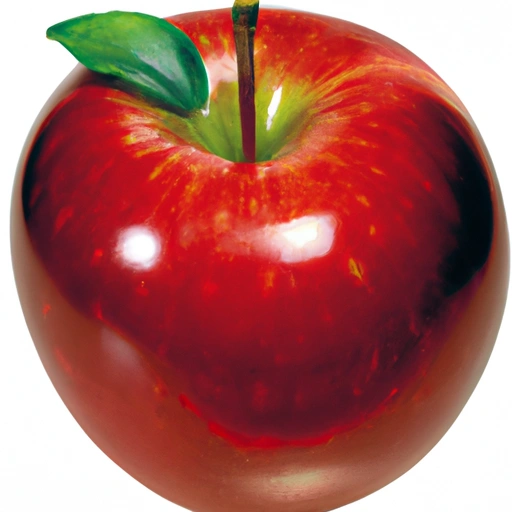McIntosh Apple
Description

The McIntosh apple is a classic fruit known for its bright red with green splotches skin and a perfect balance of sweet and tart flavors. This apple variety is particularly famous for its tender, white flesh, which is juicy and refreshingly crisp. McIntosh apples are a staple ingredient in many kitchens around the world, cherished for their versatility in both sweet and savory dishes. Whether measured in ounces (oz) and pounds (lb) as commonly used in American recipes or grams (g) and kilograms (kg) for European and Asian standards, this apple adds delightful flavor and texture to any culinary creation.
Common uses
McIntosh apples are widely used in fresh preparations like salads and fruit platters, as well as in cooked dishes such as pies, sauces, and ciders. They are also enjoyed simply as a healthy, raw snack. The fruit's tender flesh and balanced sweetness make it a favored ingredient for a variety of culinary applications.
Nutritional value
Calories
A medium-sized McIntosh apple (about 182g or 6.4 oz) contains approximately 80 calories, making it a low-calorie snack that's perfect for weight management.
Protein
Each McIntosh apple has about 0.5 grams of protein, which is minimal but still contributes to the overall nutrient content of the fruit.
Fat
McIntosh apples are virtually fat-free, containing less than 0.2 grams of fat per medium-sized apple.
Carbohydrates
Carbohydrates are the primary macronutrient in McIntosh apples, with about 21 grams, including 4 grams of dietary fiber, which aids in digestion.
Vitamins
These apples are a good source of vitamin C, with one medium apple providing about 8 mg, which is about 14% of the daily recommended intake. They also contain small amounts of vitamins A and K.
Minerals
While not a significant source of minerals, McIntosh apples do offer some potassium, calcium, and magnesium, contributing to overall mineral intake.
Health benefits
McIntosh apples are known for supporting digestive health due to their fiber content, boosting the immune system with vitamin C, and potentially lowering the risk of chronic diseases thanks to their antioxidants.
Potential risks
For individuals with allergies to birch pollen, consuming McIntosh apples may trigger oral allergy syndrome (OAS). As with any food, moderation is key; overconsumption of apples can lead to excessive sugar and calorie intake.
Common recipes
McIntosh apples are often used in classic recipes such as apple pie, apple crisp, and applesauce. They're also a common component in apple butter and baked goods like muffins and cakes.
Cooking methods
This apple variety is suitable for both raw and cooked preparations. It can be baked, boiled, sautéed, or microwaved. McIntosh apples tend to break down easily when cooked, making them perfect for sauces and fillings.
Pairing with other ingredients
McIntosh apples pair well with sharp cheeses, nuts, cinnamon, caramel, and pork. They are also delightful when combined with other fruit in salads or desserts.
Summary
The McIntosh apple is an alluring ingredient with a rich history, notable for its sweet-tart taste and culinary versatility. It provides essential nutrients and health benefits, making it a wholesome addition to any diet. While it offers a range of culinary applications, it's important to consider individual allergies and dietary needs. Overall, the McIntosh apple remains a cherished fruit in cuisines worldwide, enjoyed for its distinctive flavor and texture.